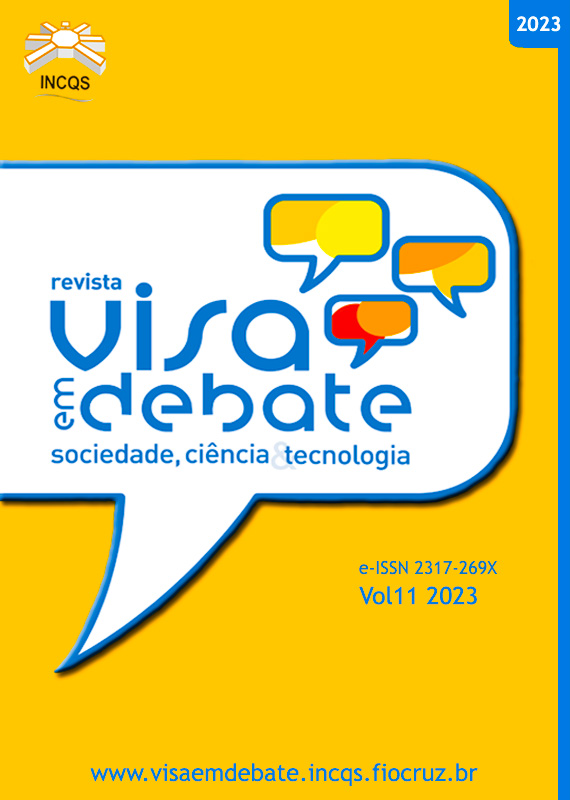The Program for Productive Inclusion and Health Security (PRAISSAN): between the reasonableness of health requirements and the cultural traditions of family farming
Vigil Sanit Debate, Rio de Janeiro, 2023, v.11: e02139 | Published on: 29/09/2023
DOI:
https://doi.org/10.22239/2317-269x.02139Keywords:
Evaluative Research, Theory-driven Evaluation, Individual Microenterprises, Solidarity Economic EnterprisesAbstract
Introduction: In 2017, the Program for Productive Inclusion and Sanitary Security (PRAISSAN) was institutionalized by the National Health Surveillance Agency (Anvisa) with the purpose of socially and productively including individual micro-enterprises, solidarity economic enterprises, and family farmers through sanitary regularization of their activities. Objective: This study aimed to understand the articulation between the norms and guidelines that structure the design of PRAISSAN and the dynamics of implementation in different local contexts. Method: This is an evaluative research developed based on
the theoretical framework of the so-called theory-driven evaluation. The set of theoretical premises that shape the design of the intervention and the results of a multiple case study developed in three Brazilian municipalities, starting in 2017, with emphasis on the process of sanitary regularization of food produced by family farmers are discussed. Results: PRAISSAN provided a change in the approach of health surveillance agents and farmers. A focus on the practice of health surveillance professionals was identified. The guiding approach non-punitive on the practice of health surveillance professionals promoted a greater adequacy to the sanitary requirements by family farmers and facilitated the management of local actions. However, disagreements and challenges regarding productive inclusion, income generation and food marketing remain. Conclusions: The theory of the program
must be improved, in the direction of explaining how habits can be preserved without increasing the health risk in the production process. In addition, systematic investigations and evaluative research should be encouraged to advance in understanding the limits and advances of PRAISSAN.
Downloads
Downloads
Published
Issue
Section
License
Copyright (c) 2023 Raquel Hunger, Rosana Magalhães, Delaine Martins Costa (Autor)

This work is licensed under a Creative Commons Attribution 4.0 International License.
COPYRIGHT ALLOWANCE The author (s) hereinafter designated as the ASSIGNOR hereby assign and transfer, free of charge, the ownership of the copyrights related to this ARTICLE to the Vigilância Sanitária em Debate: Sociedade, Ciência & Tecnologia (Health Surveillance under Debate: Society, Science & Technology) – Visa em Debate, represented by FUNDAÇÃO OSWALDO CRUZ, established at Av. Brasil, nº 4365, Manguinhos, Rio de Janeiro, RJ, Brazil, CEP 21045-900, under the conditions set out below: (a) The terms and conditions set forth in this Agreement shall apply to the following: 1. The ASSIGNOR declares that they s(he) is (are) the author (s) and owner (s) of the copyrighted property of the ARTICLE submitted. 2. The ASSIGNOR declares that the ARTICLE does not infringe the copyrights and / or other property rights of third parties, that the disclosure of images (if any) has been authorized and that they s(he) assume(s) full moral and / or property liability for its content, before third parties. 3. THE ASSIGNOR assigns and transfers all copyrights relating to the ARTICLE to the ASSIGNEE, especially the rights of editing, publication, translation into another language and reproduction by any process or technique. The ASSIGNEE becomes the exclusive owner of the rights related to the ARTICLE, and any reproduction, totally or partially, is prohibited in any other means of publicity, printed or electronic, without prior written authorization from the ASSIGNEE. 4. The assignment is free and, therefore, there will be no remuneration for the use of the ARTICLE by the ASSIGNEE.






